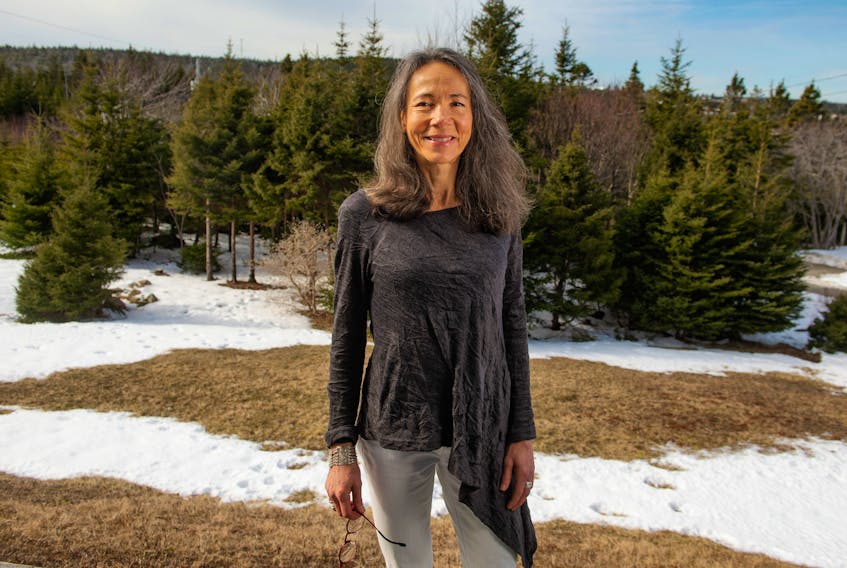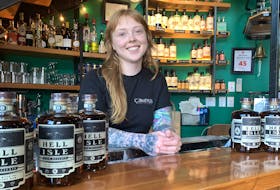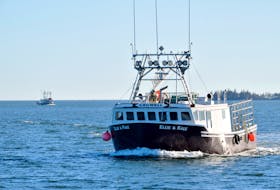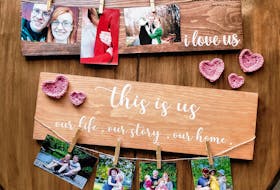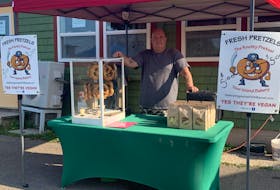Ironically, it’s a trip that Ursula Snyder wasn’t able to take that’s giving her some optimism about her business.
Snyder, the founder of Du Nord Skin Care, which she runs out of her home on the outskirts of Ketch Harbour, couldn’t afford to attend a large cosmetics trade show scheduled to be held in Barcelona last year.
But when COVID turned the show virtual, Snyder was on more even footing so she put up her company’s profile.
“I thought that since I was Miss Nobody that no one would want to connect with me, but I was wrong,” she said of the show, which is a way for ingredient producers and buyers to connect.
“Wildly different companies from all over the world wanted to meet with me, from Israel to South America to Africa to Sweden, and several from France.”
Since that show, Du Nord has reached an agreement with a startup run by two women in Sweden. Snyder thinks there’s potential there.
Considering that Snyder, 59, makes skin-care products, and considering the way her skin glows, she’d be forgiven for being full of assurance. Instead, she has misgivings about her business.
Getting connected, getting started
She grew up in Nova Scotia, then earned a physics degree at Dalhousie and a PhD in molecular biology from Brown University. She had been a magazine editorial director and was working in New York when 9-11 sent her home to Nova Scotia.
“I found myself . . . with no connections, not knowing what to do, except that I’d always been interested in social determinants of health and I wanted to do something community minded, so I began teaching yoga.”
Her bright and airy house in the woods looks like a place to hold yoga classes, which she did for 13 years.
“Unfortunately, I didn’t make any money,” she said.
“So, I was struggling, trying to figure out what I was going to do with myself as a supplemental income.”
And that led to what she describes as an accident she got carried away with.
“I’d been thinking, what can I do that brings together my science, my health and wellness background, my education and my love of this landscape,” she said.
“I walk this area, I know these plants intimately, and I’ve known for years that they’ve been used by Indigenous peoples for wound healing, for inflammation. I just know the plants; I’ve touched them, eaten them, photographed them and written about them.”
Getting started
This was in 2014, when Snyder decided she wanted to make skin-care products from the plants that inspired her. There were plenty of obstacles, foremost among them the fact she couldn’t source extracts of those things locally. That means her raw ingredients come mainly from Europe and Quebec.
“Which makes me so sad. But just about all the plants that I use, the botanicals, I can find up there,” she said, pointing out a window and up the hill.
“In other words, I can’t get the extracts from here, but the inspiration for almost every product . . . blueberry, cranberry, bear berry, cloud berry, spruce, birch, jack pine, larch, juniper, all of them I can find right here.”
It took years to create relationships with producers of raw materials and to come up with a product line.
“I created my own formulations, I made lots of mistakes, I bought standard industry equipment, so that was a big investment. And I have lab experience, I know how to be in a lab, what it takes to make something,” said Snyder, whose description of the work she does in the lab she built in the basement can be hard to follow if you don’t have, for example, a PhD in molecular biology.
She has nine products in her line now and two more in development. Packaged in (expensive) recyclable glass bottles she imports from Germany, 30 millilitre containers range in price from $85 to $150.
“It’s a high-end product, there’s no question. But I’ve made them quite concentrated, so a little goes a long way,” she said.
“My typical client is a well-educated woman between 40 and 87. I have men also, older men; the line is aimed to be all-gender.”
Snyder knows she’s good at the science and the creative part of the business, but marketing makes her “cringe.”
She considered quitting when COVID disrupted her supply chain but was talked out of it.
“My customers, the few that I have, said, ‘Please don’t. We really like this stuff, it’s really good, you’ve got to keep going,’” she said.
“It still hasn’t gone. I am not a success, by any stretch of the imagination, except creatively. And I have three years of people who have bought my product, over and over again. So, I know I’ve made something real.”

